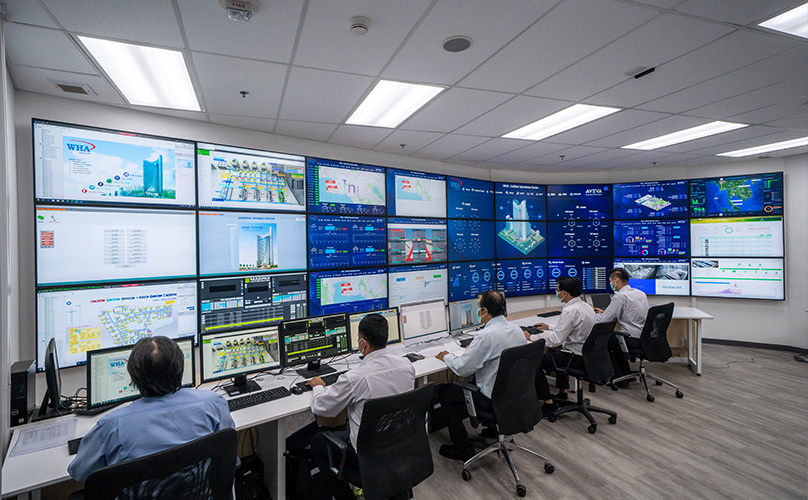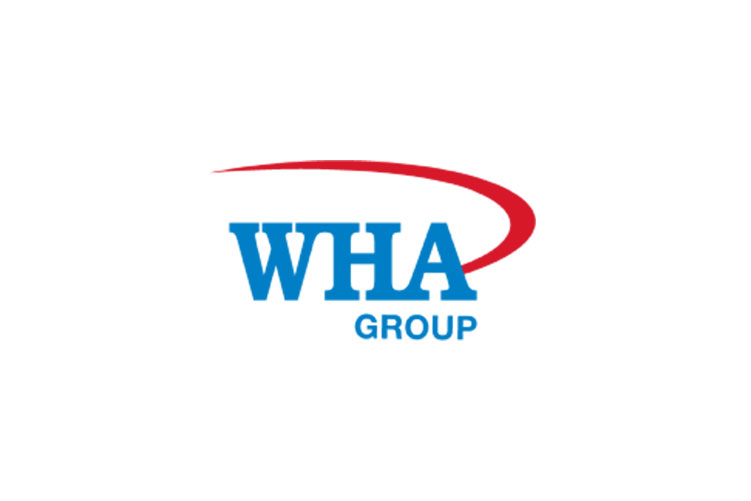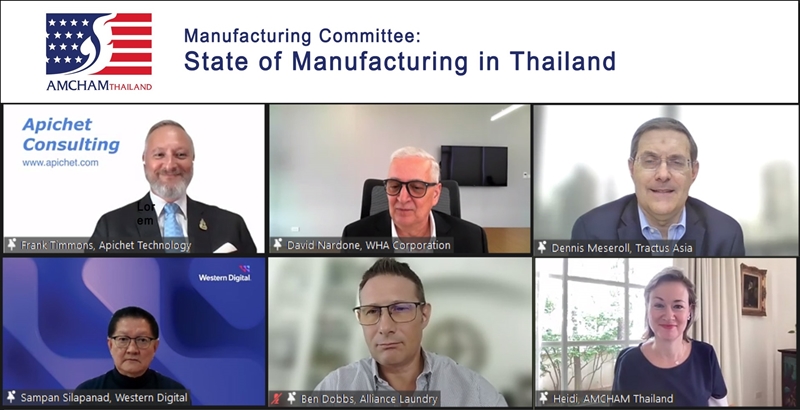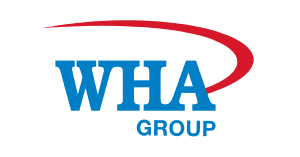Unified Operations Center (UOC)
In 2019, WHA Group implemented the Unified Operations Center (UOC) which projects real-time monitoring results of all relevant environmental parameters such as air quality, rainfall volume and wastewater quality, and serves as a complaint handling center. In this chapter, promising progress in this reporting year (2020) is focused while further detail of UOC is provided in the Environmental Impact Management chapter. Key progress made in 2020 include:
- The UOC was connected to all installed CCTVs throughout WHA Group's Industrial Estate. Imagery of these CCTV projections are displayed at the UOC which allowed valuable assets such as lift stations to be monitored at all times. From the first 6 months of investing in the CCTV monitoring system, a total of 775,000 Baht has been saved from security guard costing.
- In Eastern Seaboard Industrial Estate, the CCTVs installed at the wastewater treatment plants' pumping stations and projected at UOC were updated to have motion detecting functions and level alarms called Smart Motion Detector. This initiative enhanced security as the CCTVs can now detect and warn in case of any intrusions. In addition to theft prevention, the alarms will also ensure there are no risk of wastewater off-standards, while also monitor the operating systems of the lift stations. The system will notify of this emergency case to the responsible person at UOC and through Line application in order to respond to the case accordingly. Furthermore, as security guards are not required to visit the sites as often, this alarm system helps to reduce air pollution and greenhouse gas emissions from travelling. Likewise, it also minimized risks and the occurrence of road accidents, hence, promoting safety for both its employees and relevant stakeholders.
After the development and implementation of the UOC, WHA Group can reduce operating costs and workload of employees whose skills could be potentially developed to perform more complex tasks to support sustainable growth of the Group. Moreover, this implementation could provide safety to communities and stakeholders surrounded in industrial estates and could reduce air pollution, air emission and dust produced by vehicles commuted in day to day operation. As a result, WHA Group could maintain air quality level that complies with the requirements and standards specified in the Environmental Impact Assessment (EIA) and able to reduce approximately 75.4 tCO2e of direct GHG (Scope 1) per year from reduction of car fuel used in operation.





